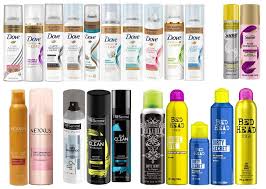
Dry shampoo has become the industry standard for rapid fixes in the cosmetics industry. Dry shampoo, which comes in powder form, can be quickly sprayed from the can to decrease greasiness without the use of water. However, if you happen to have a bottle of Dove dry shampoo in your shampoo cart, reconsider before you buy it.
The drug regulator recently ordered the recall of Dove dry shampoo from the US market after discovering that some of its variations contained carcinogens including benzene. The items were removed from the market on October 21 and customers were advised of the products’ carcinogenic hazards.
About the product recall in the US market
According to a Bloomberg story, Unilever has claimed that Dove and other dry shampoo brands are contaminated with the carcinogenic chemical benzene. According to a formal notification published on the Food and Drug Administration website on Friday, the consumer goods firm also includes brands including Nexxus, Suave, Tresemmé, Rockaholic, and Bed Head dry shampoo producer Tigi on its list of recalled products. The products affected by the recall were created before October 2021, according to media sources.
The propellants that are used to spray the items from the cans seem to be the main source of the issue with aerosols. This was the situation, according to Unilever, with its recall of dry shampoo. The amount of benzene that was discovered in the products has not been disclosed by the company.
In May 2021, an analytical lab by the name of Valisure, New Heaven, made a similar discovery when it discovered Benzene in sunscreens. Following this, many products from well-known brands were removed from shelves, including Banana Boat by Edgewell Personal Care Co., Coppertone by Beiersdorf AG, and Neutrogena by Johnson & Johnson.
What are these cancer-causing chemicals?
Human exposure to benzene, which is categorized as a human carcinogen, can happen through ingestion, inhalation, and skin contact. It carries a significant risk for leukemia and blood malignancies of the bone marrow. According to several publications, benzene is ingested by people every day from a variety of sources all around the world.
The amount of benzene in the goods was not mentioned by Unilever Plc, although it did state that it has voluntarily recalled certain dry shampoo brands. The shops have been told to remove the recalled goods from shelves because they were sold all throughout the country in the United States, according to the officials.
The main cause of the problem seems to be the propellants used to spray personal care products from cans in aerosols. Unilever claims that this is what prompted the dry shampoo recall. The business did not say how much benzene was present in the products, only that it was recalling them out of an excess of caution.
Spray-on personal care items like dry shampoo typically contain propane and butane, petroleum distillates made by processing crude oil. Benzene is a recognized contaminant in petroleum products. According to the FDA, propellers are a known potential source of benzene contamination.
Do Indian products also get affected by these?
Hindustan Unilever (HUL) has declared that it neither manufactures nor sells dry shampoos in India, so customers there shouldn’t panic. The company sells their goods to over hundreds of countries, but India doesn’t have to worry about this situation.
After an internal study revealed increased levels of benzene, Unilever US and Canada voluntarily recalled specific lot codes of dry shampoo produced before October 2021 out of an abundance of caution. Levels of benzene identified do not represent a health concern, according to an independent assessment of health hazards, as per a spokesperson for HUL.